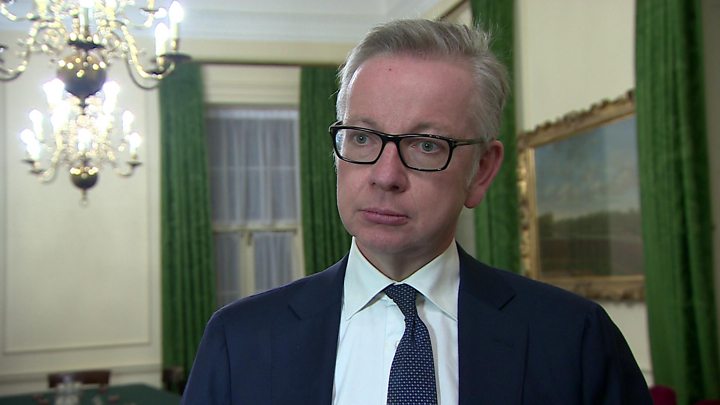Parliament suspension sparks furious backlash
The prime minister’s decision to suspend Parliament has prompted an angry backlash from MPs and opponents of a no-deal Brexit.
It sparked protests across the country, a legal challenge and a petition with more than a million signatures.
The government said the five-week suspension in September and October will still allow time to debate Brexit.
But critics said it was an “undemocratic” attempt to stop MPs from blocking no deal.
Cabinet minister Michael Gove told the BBC the suspension, which was approved by the Queen on Wednesday, was “certainly not” a political move to obstruct opposition to the UK leaving the EU without a deal.

He said there would be “plenty of time” to debate Brexit before the scheduled departure date of 31 October.
On Wednesday, Mr Johnson said a Queen’s Speech would take place after the suspension, on 14 October, to outline his “very exciting agenda”.
He said he did not want to wait until after Brexit “before getting on with our plans to take this country forward”.
Leader of the House Jacob Rees-Mogg, who was at the meeting with the Queen, said this Parliamentary session had been one of the longest in almost 400 years, so it was right to suspend it and start a new session.
Writing in the Daily Telegraph, he said the only “constitutional crisis” was being caused by those who opposed the decision of the 2016 referendum.
Labour leader Jeremy Corbyn described it as “a smash-and-grab on our democracy” in order to force through no-deal by leaving MPs without enough time to pass laws in Parliament. He pledged to try to stop the suspension.

And anti-Brexit campaigner Gina Miller – who previously won a legal battle against ministers over Article 50 – has made a judicial review application to the courts about Mr Johnson’s decision.
The prime minister says he wants to leave the EU at the end of October with a deal, but is willing to leave without one rather than miss the deadline.



